Money
Landfill issue could delay opening of Pokhara airport
A nearby rubbish dump poses a bird-strike risk to aircraft. Until it is cleared, the airport remains off-limits.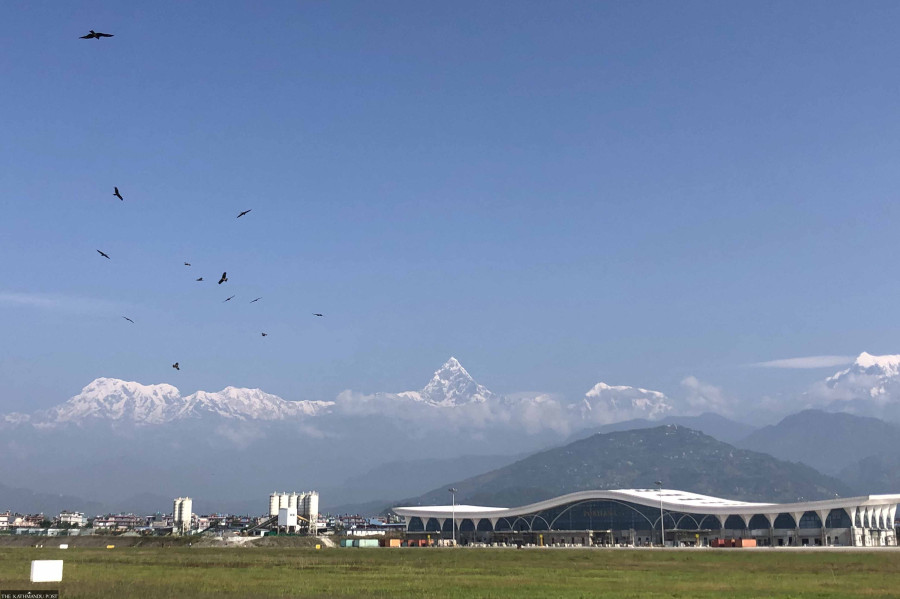
Sangam Prasain
Putting the cart before the horse has been a government tradition in most development projects.
In 2014, Nepal imported a batch of Chinese airplanes, only to realise after they had arrived that there were no pilots to fly them.
When the first two of the 17-seater Y12e aircraft reached Kathmandu, they remained grounded for months. The national flag carrier Nepal Airlines Corporation did not have pilots who were trained to fly them. Years passed and still there were no pilots. Finally, the shiny new planes were put away indefinitely.
Earlier in 2012, residents of the popular holiday town of Pokhara, demanding that a new international airport be built, conducted a relay hunger strike lasting months, even forcing the domestic airport to shut down.
The airport plan had remained on the drawing board for decades, and the people had lost patience. The government finally contracted China CAMC Engineering to build the international airport in May 2014, and work started in July 2017.
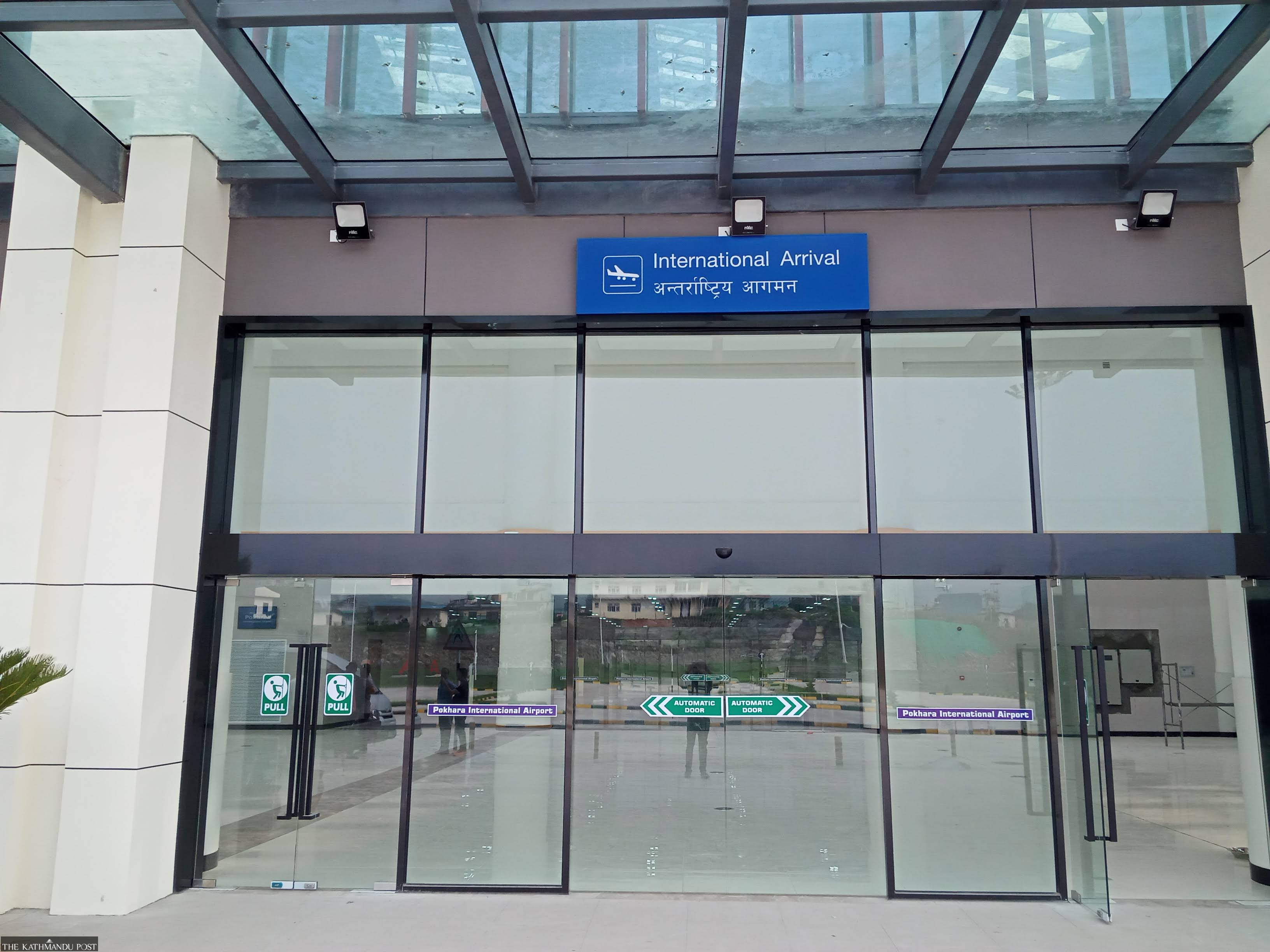
The government took a $215.96 million soft loan from China EXIM Bank in March 2016 to pay for the project, which was implemented on the engineering procurement and construction model.
Construction work at the international airport is now 95 percent complete, but it looks like it will be another year before airplanes can start using it. The snag is a nearby landfill site which poses a bird-strike risk to aircraft. Until the rubbish dump is cleared, the airport remains off-limits.
“The airport is complete. It’s an architectural masterpiece,” said Birendra Bahadur Basnet, managing director of Buddha Air, Nepal’s largest private airline which plans to connect Pokhara with all cities in the country besides some international destinations.

“But the major concern with the airport is the Bacche Baduwa landfill site located close to the new airport. As the landfill site attracts birds of prey such as vultures, kites and eagles, it poses a major threat to aircraft,” said Basnet. “No one will operate if the landfill site is not cleared.”
The landfill site lies 1.5 km from the airport on the banks of the Seti River. According to Civil Aviation Rule 2002, no person shall be allowed to store and dump solid waste openly in and around the airport boundary of 3 km because it may invite risk of bird aircraft strike hazard that has been the case at Kathmandu’s Tribhuvan International Airport.
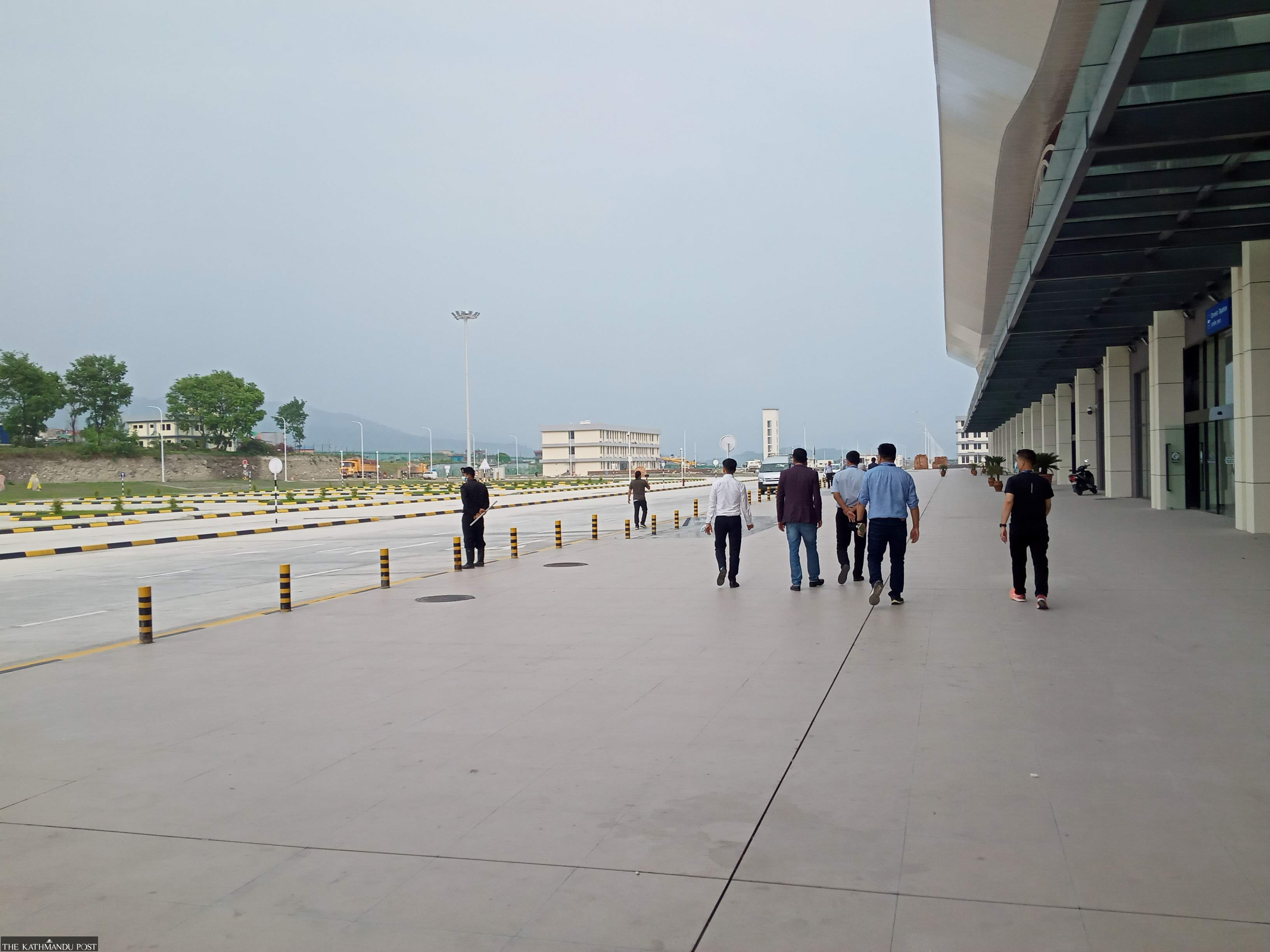
More than 100 bird hit incidents during take-off or landing have occurred at Kathmandu airport since 1990.
In 1996, a Thai Airways Airbus A300 was involved in a bird hit which left the fan blades of the left engine damaged. The mangled bodies of five-six eagles were found on the runway. The jet was stuck in Kathmandu for four days.
In 2000 and 2014 respectively, a Nepal Airlines Boeing 757 and a Jet Airways Boeing 737 lost power in one engine due to bird strikes.There has been only one fatal accident due to bird strike which involved a Dornier 228 aircraft on September 28, 2012. The aircraft was struck by a black kite during take-off and crashed, killing all 16 passengers and three crew on board.
Pokhara Valley is a fine habitat for various species of birds due to its Seti canyon, marshy lakes, dense forests and flat plains. The recorded bird species in the area are kingfisher, barbet, drongo, woodpecker, babbler, flower pecker, flycatcher, egret and bulbul.
The birds are residential as well as migratory, according to the Environment Assessment Report of the airport.
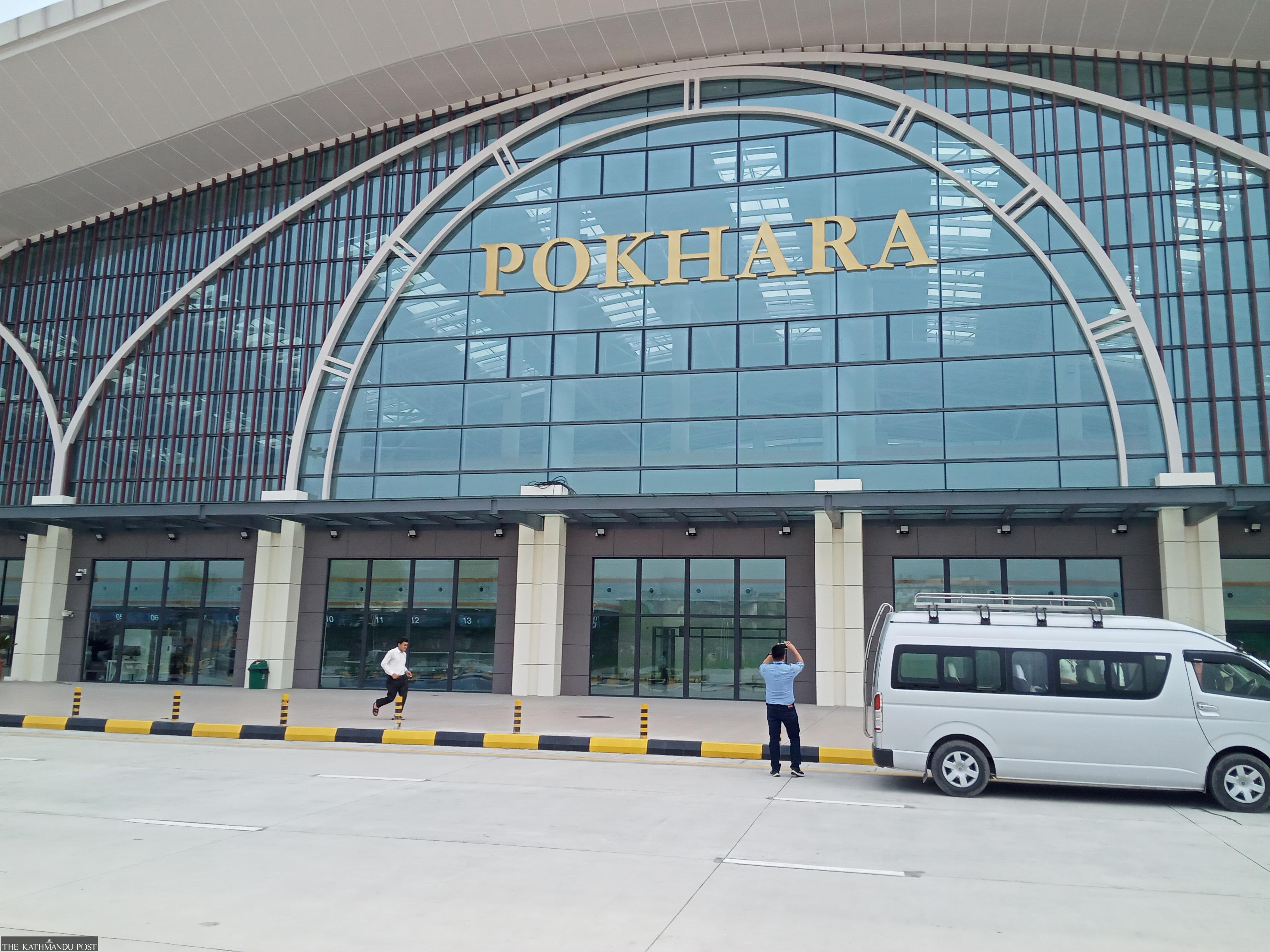
“There are at least 108 species of birds in and around the new airport,” said Bikram Gautam, coordinator of Operation Readiness and Airport Transport under the Civil Aviation Authority of Nepal. “If we relocate the landfill site, the number of birds in the area will be reduced by 40 percent.”
Pokhara has seen fast urbanisation, and it has become one of the most crowded cities in the country. The daily waste going to the landfill site is over 100 tonnes.
“We have to do constant monitoring of the birds, clear bushes and generate sounds to keep another 40 percent of the birds away from the airport,” said Gautam.
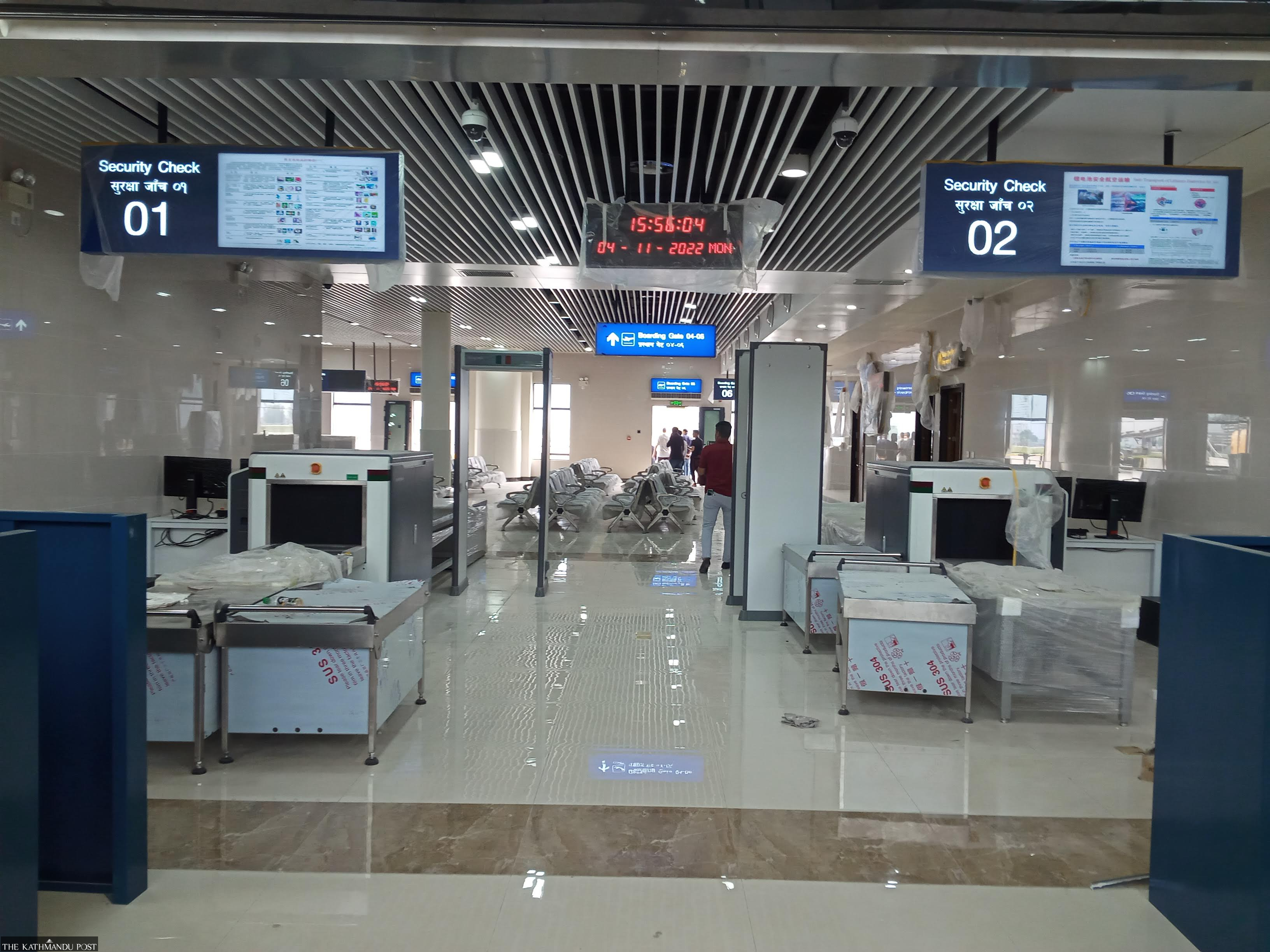
“The Civil Aviation Authority of Nepal cannot resolve the landfill site problem alone. It’s a political issue that needs to be taken care of by coordination between all three layers of government, civil society and political leaders. The dumping site is serious. We need an acceptable level of safety,” he said at an interaction in Pokhara recently.
The landfill site should have been moved by now, and it has put the project into a state of uncertainty.
Last month, Chinese Foreign Minister Wang Yi handed over the symbolic key of the country’s third international airport to Nepal before its construction was completed. It was a gesture that the Chinese-funded airport would be ready for operations before July 10, the extended deadline given to the project contractor.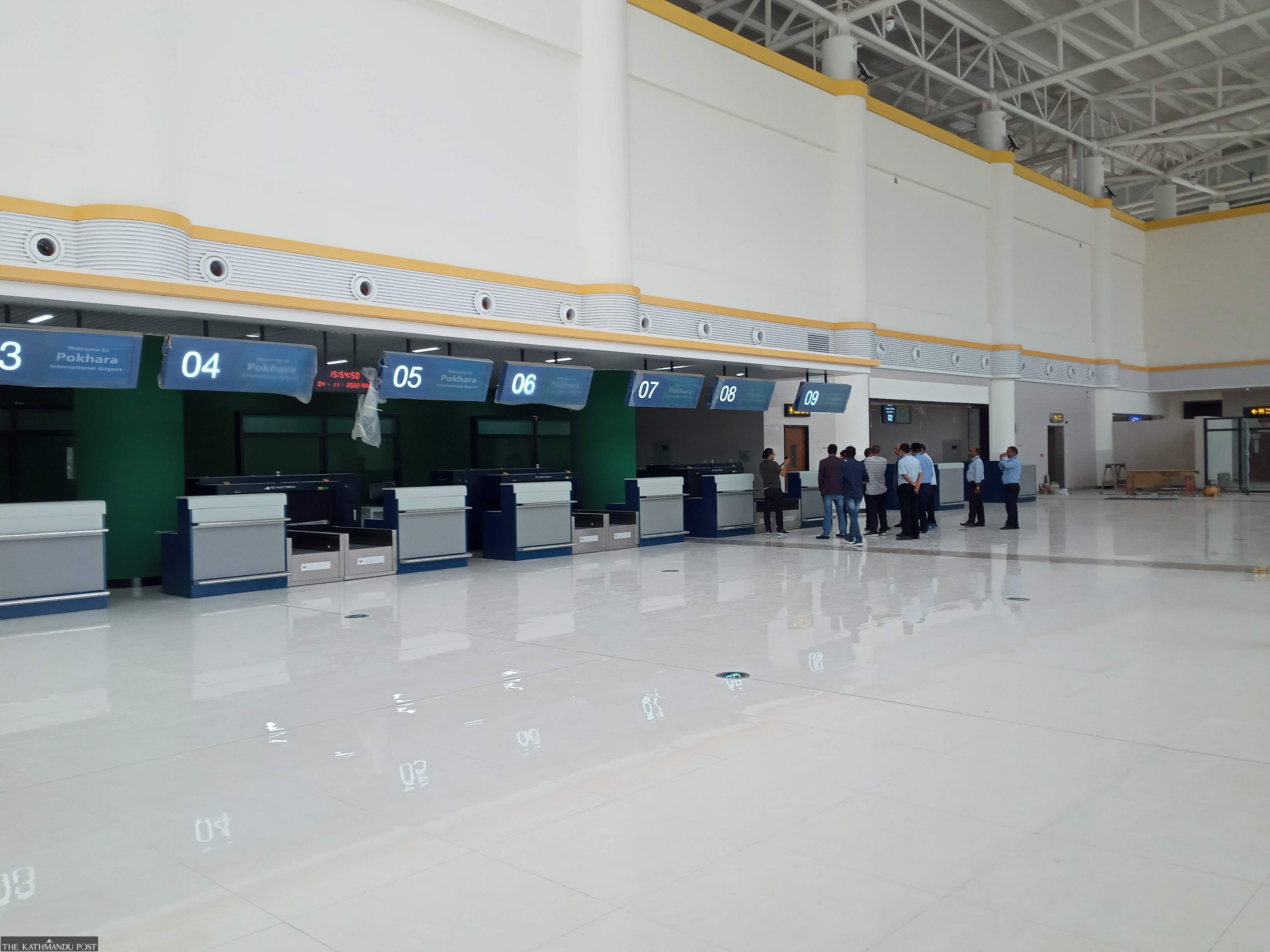
“We don’t have any date announced for the opening of the airport although it is close to being finished,” said Hansa Raj Pandey, deputy director general of the Civil Aviation Authority of Nepal. “We are concerned about safety.”
Pandey said that they can’t announce the operation date until the landfill site is cleared.
Pokhara possesses seven lakes, offers spectacular views of mountain ranges including Annapurna and Dhaulagiri, and is the gateway to famous religious places like Muktinath and Jomsom. In 2019, the domestic airport served more than 700,000 passengers, making it the second busiest airport in Nepal after Kathmandu.
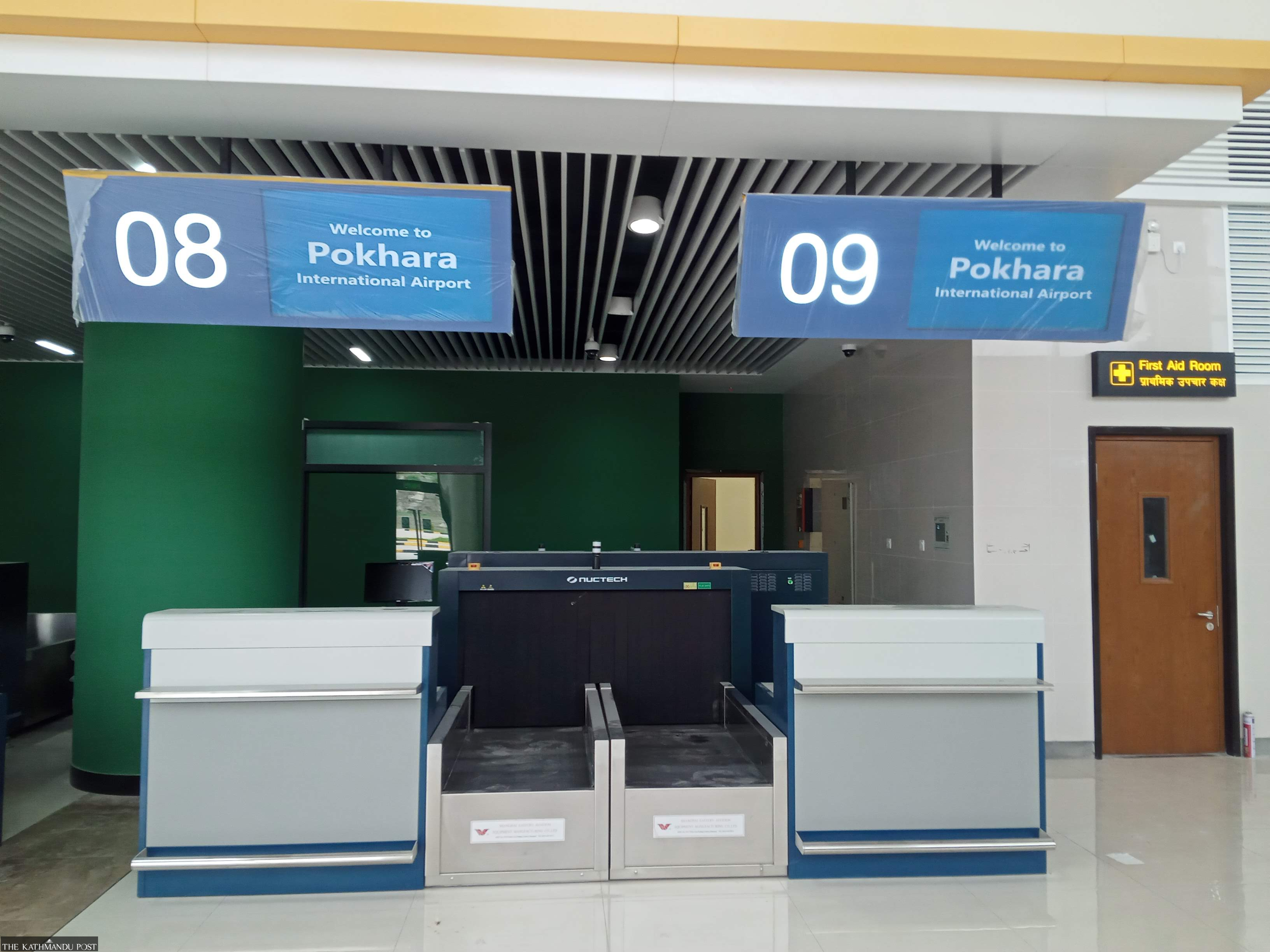
The tourism traders who are eagerly waiting for international flights to start at the new airport are unhappy with locals as well as the federal government's slow response to operating the airport.
The airport is intended to enhance the quality of tourism by creating employment opportunities to stimulate economic growth for poverty alleviation.
“We are already late,” said Dhan Bahadur Nepali, spokesperson for the metropolis. “We admit we were late in identifying the new landfill site. But the landfill site is always a political issue. It’s indeed a difficult task to find a new landfill site because nobody wants one near them.”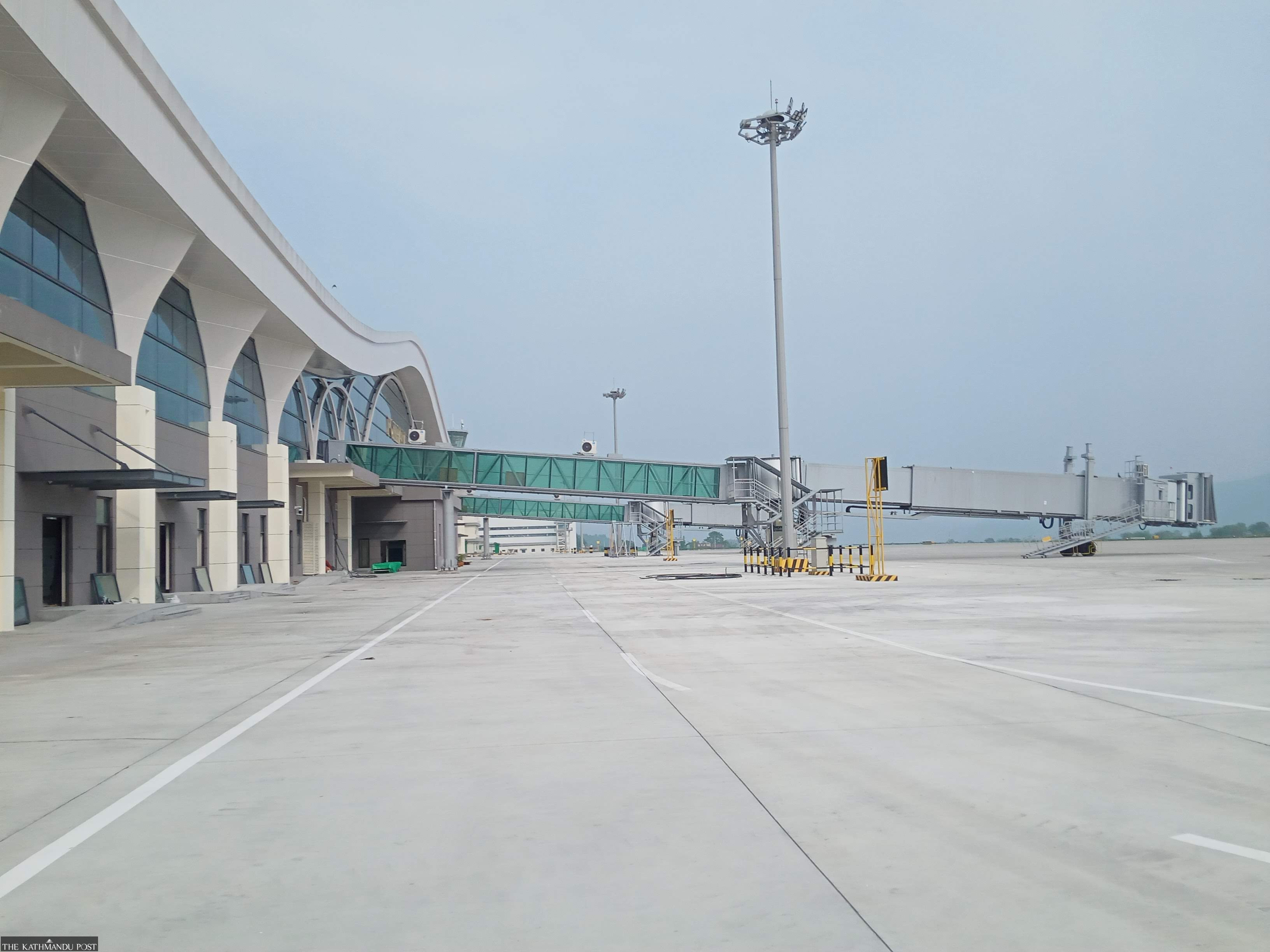
He said that they had identified three potential areas in Ward 33, and local leaders need to convince the people. “We cannot disclose the proposed location because it could turn into a political issue ahead of the local elections.”
Pokhara Mayor Man Bahadur GC is undergoing medical treatment, and Deputy Mayor Manju Gurung is on the campaign trail.
“No one is bothered with the landfill site issue,” said tourism entrepreneurs. “The construction was in the priority list of each and every individual. But when the airport got completed, no one is taking ownership.”
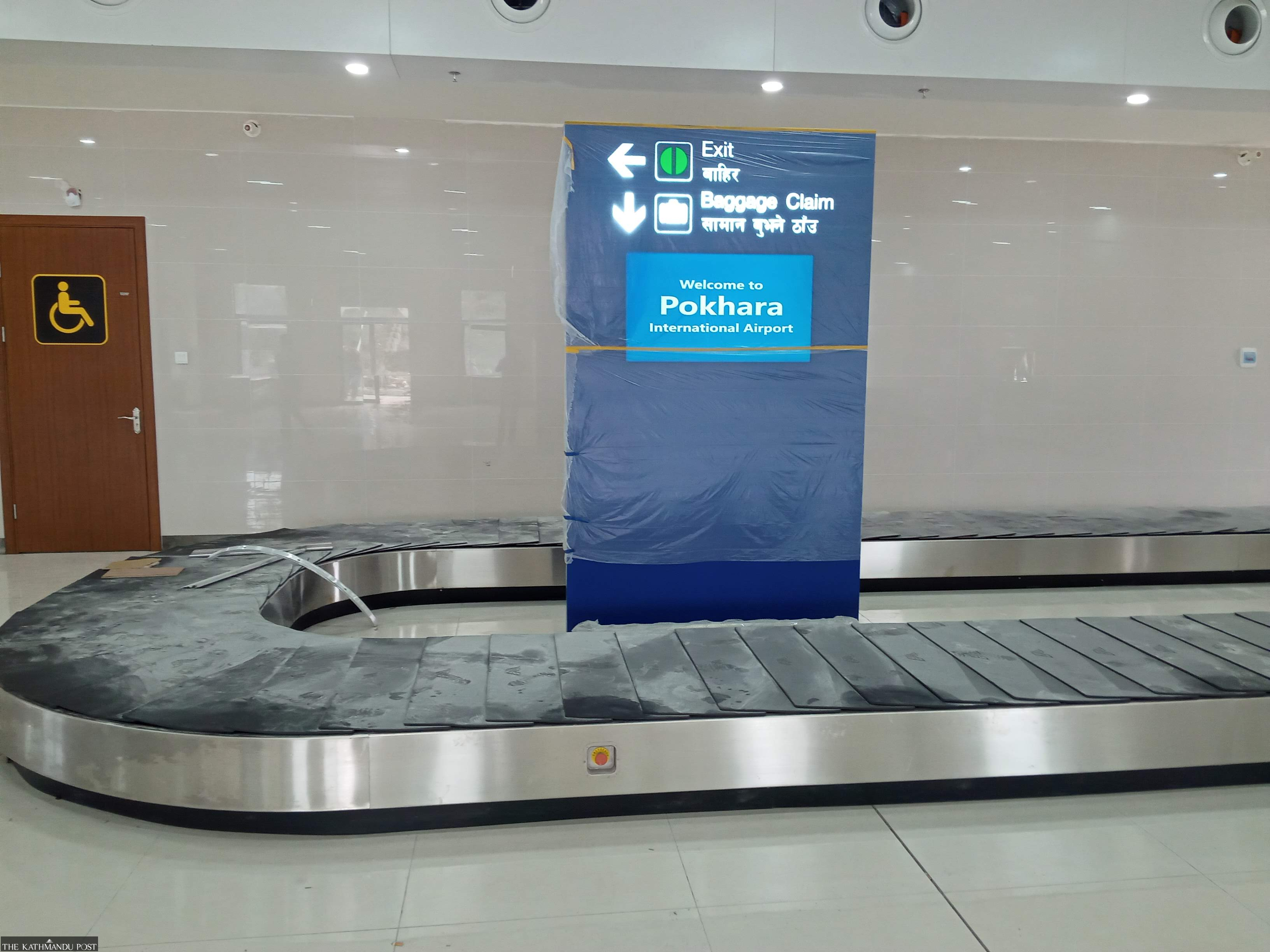
Bidya Bhattarai, lawmaker of the CPN-UML representing Kaski constituency 2, said all three tiers of government should have a common commitment to bring the airport into operation as soon as possible. “The landfill site issue, obviously, is a political one. But we have to find a solution.”
Chief District Officer Jaya Raj Acharya said that once site clearance of the new landfill site is completed, they will form a compensation determination committee to pay compensation to the land owners who will be displaced by the landfill site. “We are already late. We need to expedite the work.”
But there is no clarity about who will initiate it and make the decision. Officials say it will be a political agenda before the upcoming election.
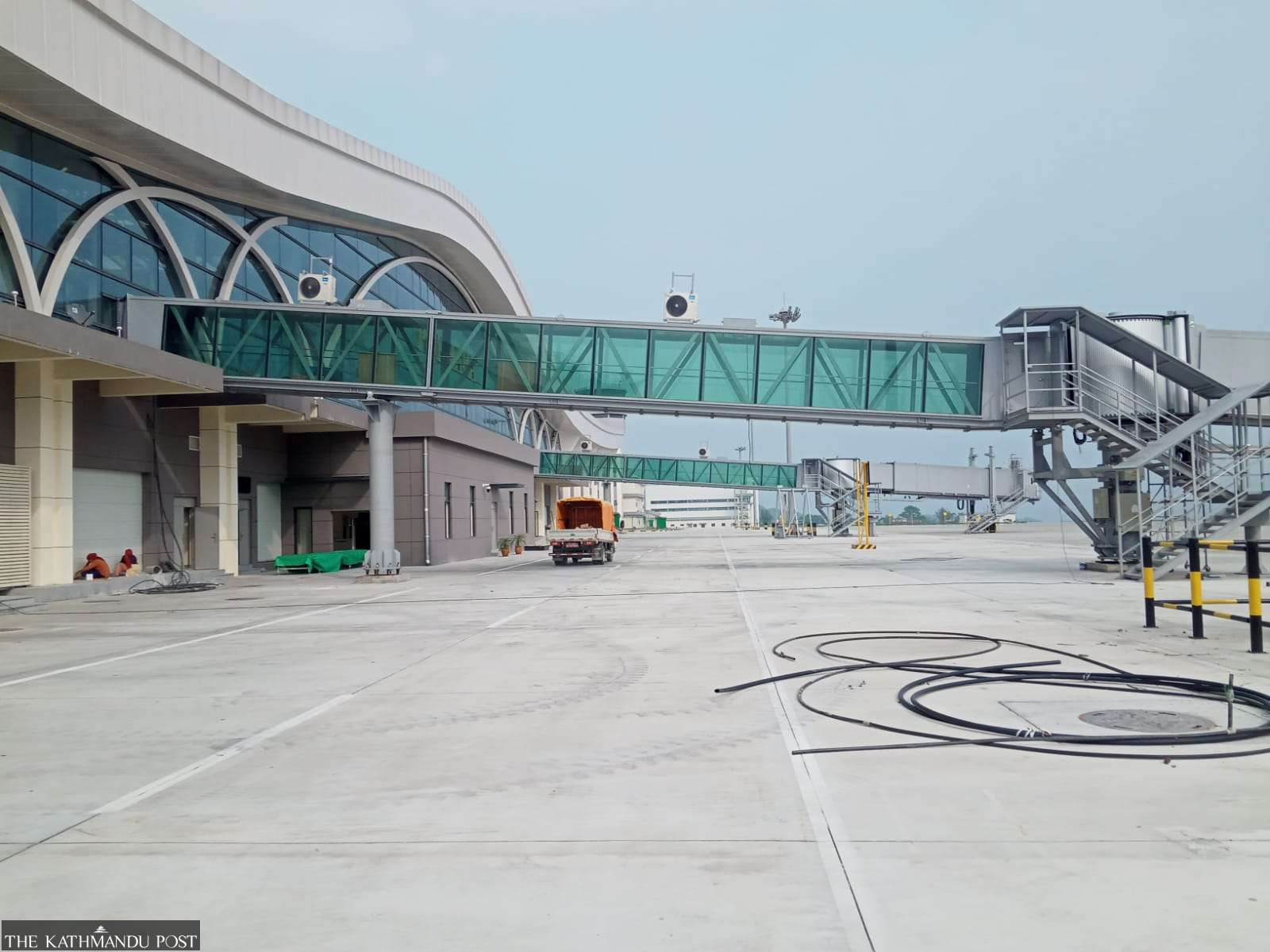
“Obviously, the issue is more sensitive than we have imagined it to be,” said city spokesperson Nepali.
Due to geographical difficulties, the new airport can handle aircraft like the Boeing 757-200 with a maximum take-off weight of slightly over 100 tonnes. The Airbus A320-200 and similar types of aircraft can operate from this airport with a load penalty, according to reports.
The international terminal has a floor area of 10,000 square metres and the domestic terminal floor area is 4,000 square metres
The runway of Pokhara International Airport is 45 metres wide and 2,500 metres long, and has an east-west orientation. A 1,200-metre-long and 23-metre-wide taxiway connects the runway with the parking bays, hangars and terminals.
The chief minister of Gandaki Province has ordered a committee to prepare a technical report on the landfill site issue, said Dipendra Karna, communication manager of Buddha Air. “The government needs to wake up before it becomes late.”




 20.12°C Kathmandu
20.12°C Kathmandu














